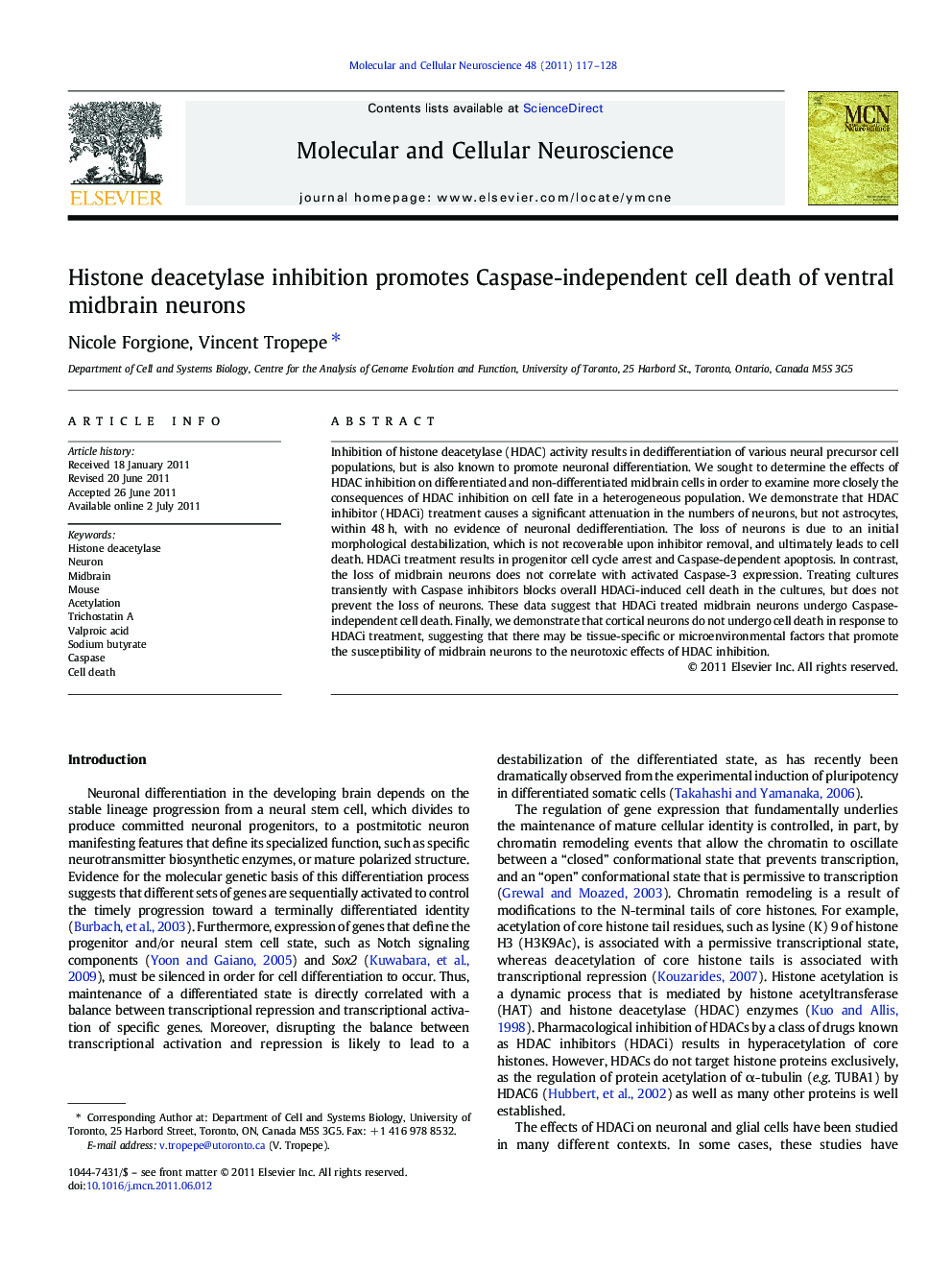| Article ID | Journal | Published Year | Pages | File Type |
|---|---|---|---|---|
| 10956519 | Molecular and Cellular Neuroscience | 2011 | 12 Pages |
Abstract
Inhibition of histone deacetylase (HDAC) activity results in dedifferentiation of various neural precursor cell populations, but is also known to promote neuronal differentiation. We sought to determine the effects of HDAC inhibition on differentiated and non-differentiated midbrain cells in order to examine more closely the consequences of HDAC inhibition on cell fate in a heterogeneous population. We demonstrate that HDAC inhibitor (HDACi) treatment causes a significant attenuation in the numbers of neurons, but not astrocytes, within 48Â h, with no evidence of neuronal dedifferentiation. The loss of neurons is due to an initial morphological destabilization, which is not recoverable upon inhibitor removal, and ultimately leads to cell death. HDACi treatment results in progenitor cell cycle arrest and Caspase-dependent apoptosis. In contrast, the loss of midbrain neurons does not correlate with activated Caspase-3 expression. Treating cultures transiently with Caspase inhibitors blocks overall HDACi-induced cell death in the cultures, but does not prevent the loss of neurons. These data suggest that HDACi treated midbrain neurons undergo Caspase-independent cell death. Finally, we demonstrate that cortical neurons do not undergo cell death in response to HDACi treatment, suggesting that there may be tissue-specific or microenvironmental factors that promote the susceptibility of midbrain neurons to the neurotoxic effects of HDAC inhibition.
Keywords
Related Topics
Life Sciences
Biochemistry, Genetics and Molecular Biology
Cell Biology
Authors
Nicole Forgione, Vincent Tropepe,
